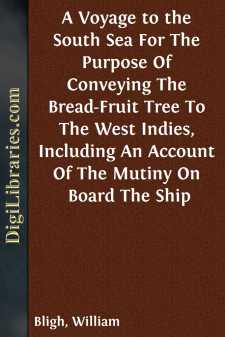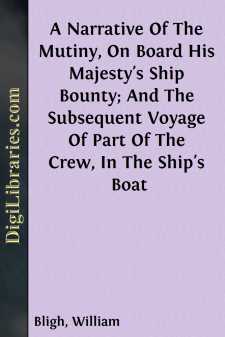Categories
- Antiques & Collectibles 13
- Architecture 36
- Art 48
- Bibles 22
- Biography & Autobiography 813
- Body, Mind & Spirit 142
- Business & Economics 28
- Children's Books 14
- Children's Fiction 11
- Computers 4
- Cooking 94
- Crafts & Hobbies 4
- Drama 346
- Education 46
- Family & Relationships 57
- Fiction 11829
- Games 19
- Gardening 17
- Health & Fitness 34
- History 1377
- House & Home 1
- Humor 147
- Juvenile Fiction 1873
- Juvenile Nonfiction 202
- Language Arts & Disciplines 88
- Law 16
- Literary Collections 686
- Literary Criticism 179
- Mathematics 13
- Medical 41
- Music 40
- Nature 179
- Non-Classifiable 1768
- Performing Arts 7
- Periodicals 1453
- Philosophy 64
- Photography 2
- Poetry 896
- Political Science 203
- Psychology 42
- Reference 154
- Religion 513
- Science 126
- Self-Help 84
- Social Science 81
- Sports & Recreation 34
- Study Aids 3
- Technology & Engineering 59
- Transportation 23
- Travel 463
- True Crime 29
A Voyage to the South Sea For The Purpose Of Conveying The Bread-Fruit Tree To The West Indies, Including An Account Of The Mutiny On Board The Ship
by: William Bligh
Categories:
Description:
Excerpt
CHAPTER 1.
Plan of the Expedition.Outfit and Occurrences to the time of leaving England.
Description of the Breadfruit.
1787.
The King having been graciously pleased to comply with a request from the merchants and planters interested in his Majesty's West India possessions that the breadfruit tree might be introduced into those islands, a vessel proper for the undertaking was bought and taken into dock at Deptford to be provided with the necessary fixtures and preparations for executing the object of the voyage. These were completed according to a plan of my much honoured friend, Sir Joseph Banks, which in the event proved the most advantageous that could have been adopted for the intended purpose.
August 16.
The ship was named the Bounty: I was appointed to command her on the 16th of August 1787. Her burthen was nearly two hundred and fifteen tons; her extreme length on deck ninety feet ten inches; extreme breadth twenty-four feet three inches; and height in the hold under the beams at the main hatchway ten feet three inches. In the cockpit were the cabins of the surgeon, gunner, botanist, and clerk, with a steward-room and storerooms. The between decks was divided in the following manner: the great cabin was appropriated for the preservation of the plants and extended as far forward as the after hatchway. It had two large skylights, and on each side three scuttles for air, and was fitted with a false floor cut full of holes to contain the garden-pots in which the plants were to be brought home. The deck was covered with lead, and at the foremost corners of the cabin were fixed pipes to carry off the water that drained from the plants into tubs placed below to save it for future use. I had a small cabin on one side to sleep in, adjoining to the great cabin, and a place near the middle of the ship to eat in. The bulk-head of this apartment was at the after-part of the main hatchway, and on each side of it were the berths of the mates and midshipmen; between these berths the arm-chest was placed. The cabin of the master, in which was always kept the key of the arms, was opposite to mine. This particular description of the interior parts of the ship is rendered necessary by the event of the expedition.
The ship was masted according to the proportion of the navy; but on my application the masts were shortened, as I thought them too much for her, considering the nature of the voyage.
September 3.
On the 3rd of September the ship came out of dock; but the carpenters and joiners remained on board much longer, as they had a great deal of work to finish.
The next material alteration made in the fitting out was lessening the quantity of iron and other ballast. I gave directions that only nineteen tons of iron should be taken on board instead of the customary proportion which was forty-five tons. The stores and provisions I judged would be fully sufficient to answer the purpose of the remainder; for I am of opinion that many of the misfortunes which attend ships in heavy storms of wind are occasioned by too much dead weight in their bottoms....



